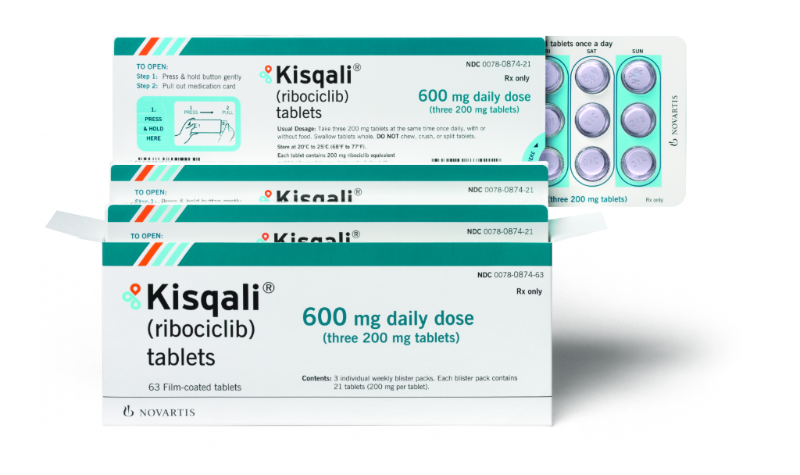
Novartis has said that Kisqali delivered superior overall survival (OS) in the Monaleesa-3 trial, demonstrating more life for postmenopausal human epidermal growth factor receptor-2 negative (HR+/HER2-) advanced breast cancer patients.
The company stated that it will present data from the trial as a late-breaker oral presentation in the Presidential Symposium at the European Society for Medical Oncology (ESMO) Congress 2019.

Discover B2B Marketing That Performs
Combine business intelligence and editorial excellence to reach engaged professionals across 36 leading media platforms.
Kisqali (ribociclib) is a CDK4/6 inhibitor used to treat several kinds of breast cancer.
The Monaleesa-3 trial is claimed to be the largest trial to assess a CDK4/6 inhibitor plus fulvestrant as initial therapy in postmenopausal women. It is the second Phase III trial where the Kisqali combination therapy has met the secondary endpoint of OS at the pre-planned interim analysis.
The study assessed the efficacy and safety of Kisqali and fulvestrant in postmenopausal women with hormone-receptor positive HR+/HER2- advanced or metastatic breast cancer.
Novartis said the combination demonstrated a statistically significant improvement in survival with a 28% reduction in the risk of death. The significant extension in survival met the early efficacy stopping criteria at a pre-specified interim analysis.

US Tariffs are shifting - will you react or anticipate?
Don’t let policy changes catch you off guard. Stay proactive with real-time data and expert analysis.
By GlobalDataThe estimated rates of survival were 58% at 42 months for Kisqali combination treatment and 46% for fulvestrant alone.
The first-line and second-line subgroups also reported consistent results with the entire Monaleesa-3 patient population, including in patients who relapsed within 12 months of adjuvant treatment.
Kisqali in combination with fulvestrant had a median PFS of 33.6 months compared to 19.2 months in the placebo arm and the need for chemotherapy was delayed in all patients.
Novartis Oncology president Susanne Schaffert said: “The remarkable results from Monaleesa-3 and Monaleesa-7 make Kisqali the CDK4/6 inhibitor with consistently superior overall survival.
“In nearly 25 years, the five-year survival rates in HR+ metastatic breast cancer have improved by less than 5%. We are committed to helping give these women more life and are reimagining a world where metastatic breast cancer becomes a curable disease.”





